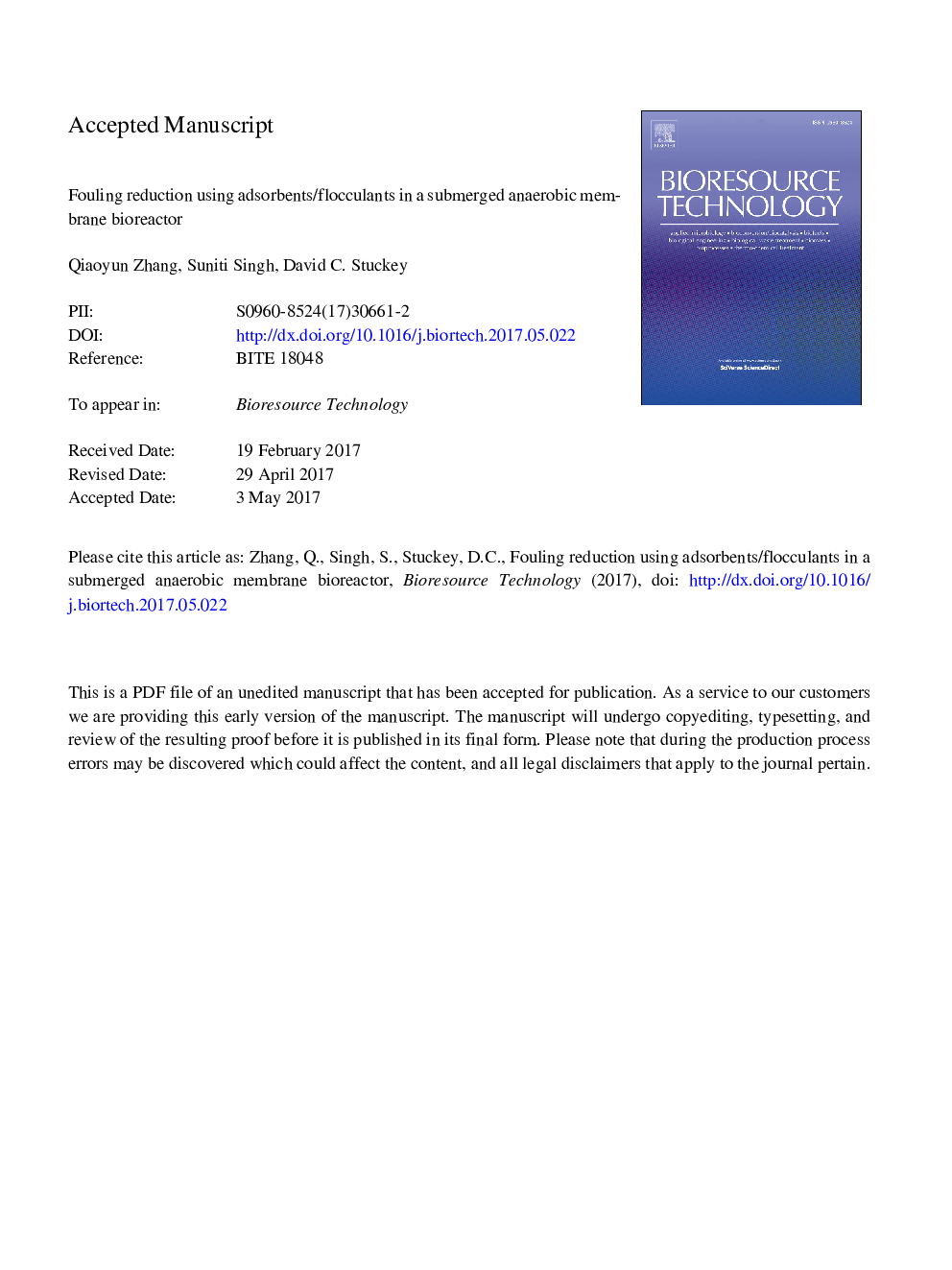| Article ID | Journal | Published Year | Pages | File Type |
|---|---|---|---|---|
| 4997140 | Bioresource Technology | 2017 | 36 Pages |
Abstract
Using adsorbents/flocculants in anaerobic membrane bioreactors (AnMBRs) to reduce membrane fouling is comparatively rare. This study evaluated 8 additives: 3 powdered activated carbons, 2 granular activated carbons, 1 cationic polymer, and 2 metal salts to identify the best additive and dose to minimise membrane fouling. Small cross flow filtration tests showed 400Â mg/L PAC SAE2, or 150Â mg/L FeCl3, reduced the transmembrane pressure (TMP) rise from 0.94 to 0.06Â kPa/h, indicating excellent fouling reduction. The best filtration performance correlated with a significant reduction in supernatant supracolloidal particles, colloids and SMPs. FESEM-EDX showed that PAC SAE 2 and FeCl3 reduced the thickness of the fouling layer dramatically, while FeCl3 increased sludge floc size and particle size of the colloids, while decreasing the negative charge of colloids, and SMP size. Furthermore, Fe was not found in the supernatant or effluent, but precipitated with the solids, which is beneficial for its long-term use.
Keywords
Related Topics
Physical Sciences and Engineering
Chemical Engineering
Process Chemistry and Technology
Authors
Qiaoyun Zhang, Suniti Singh, David C. Stuckey,
